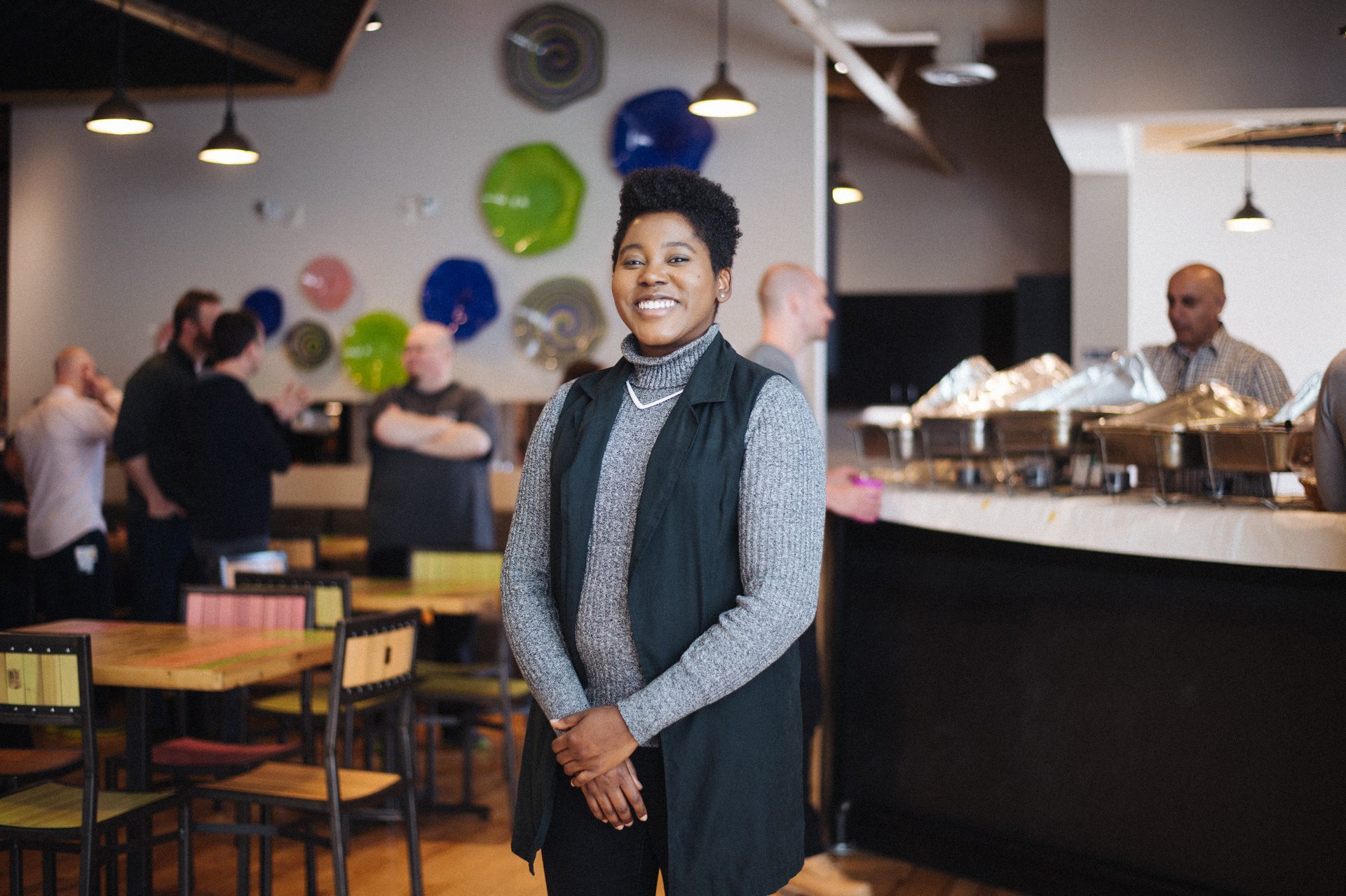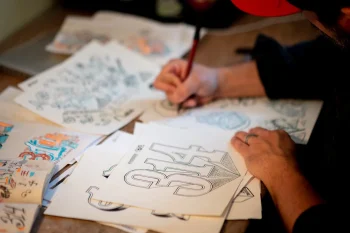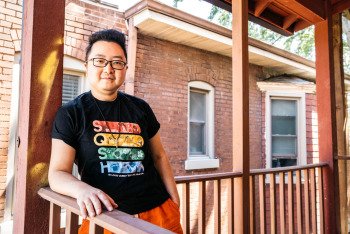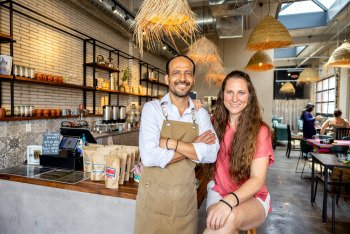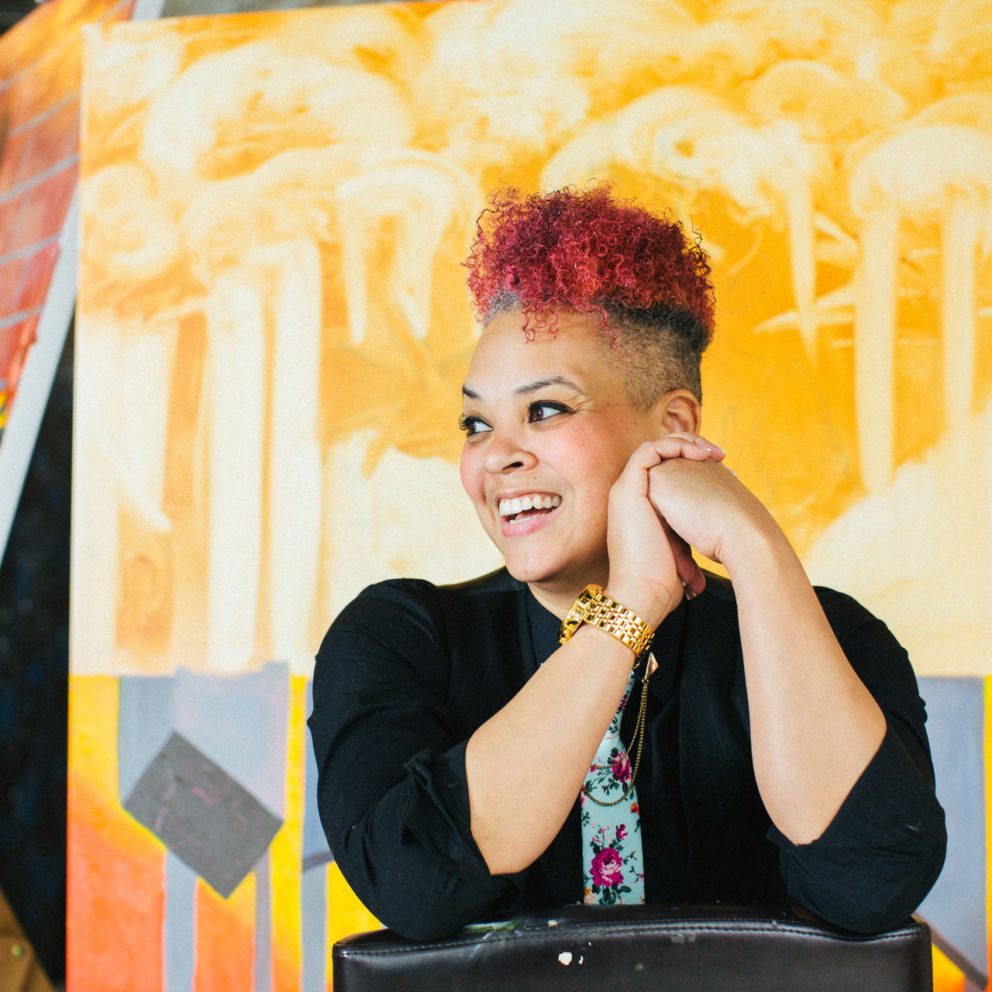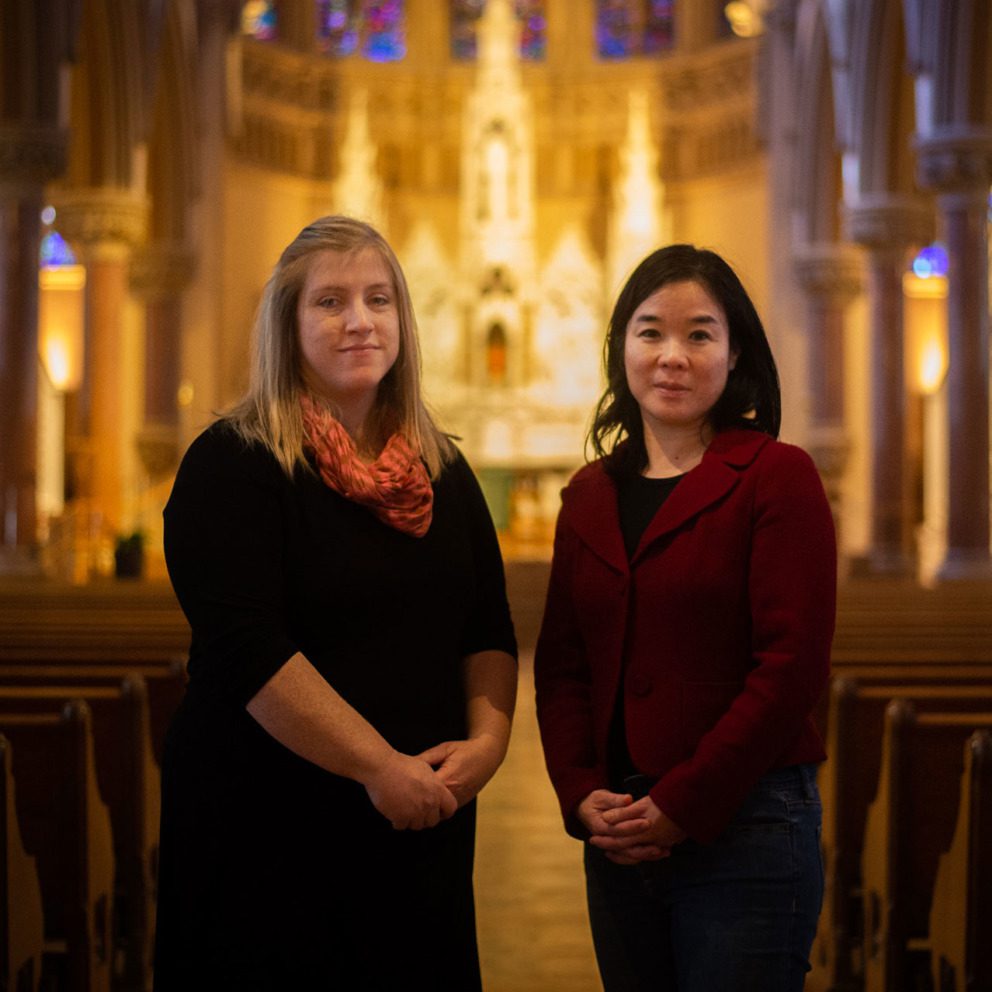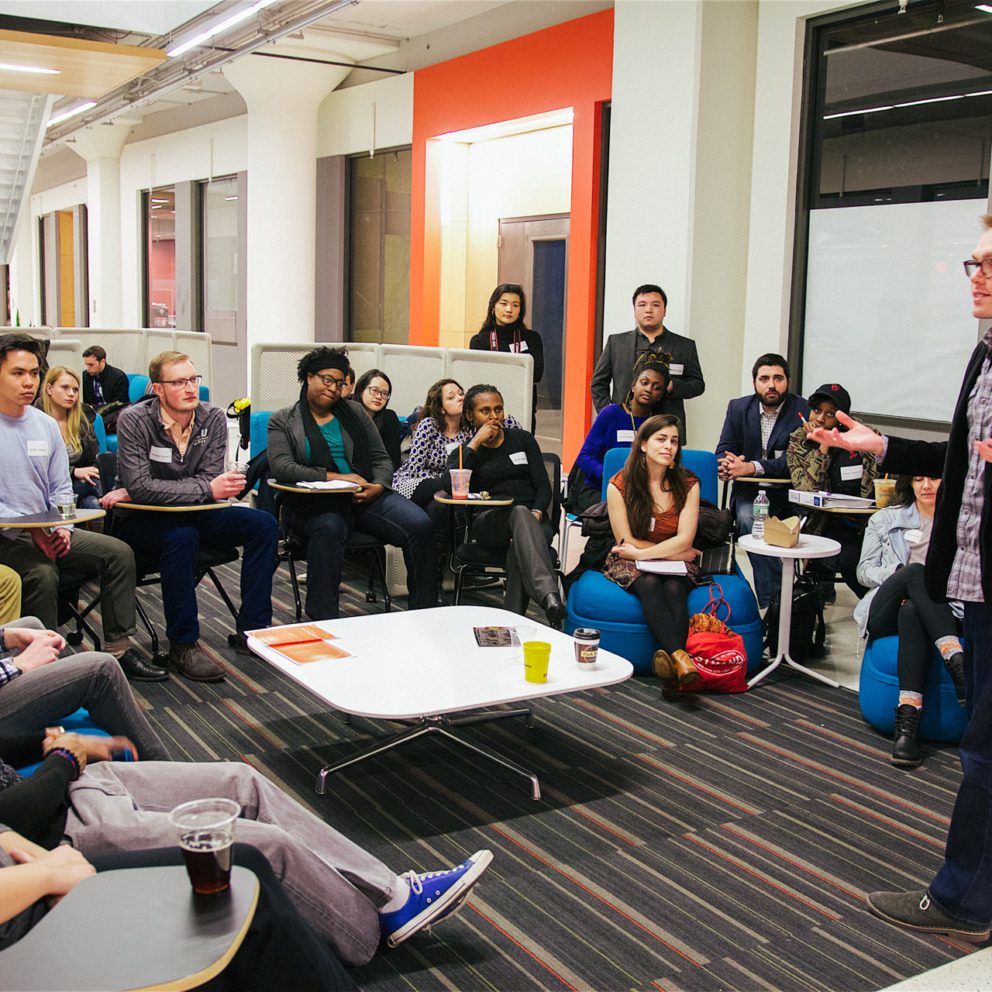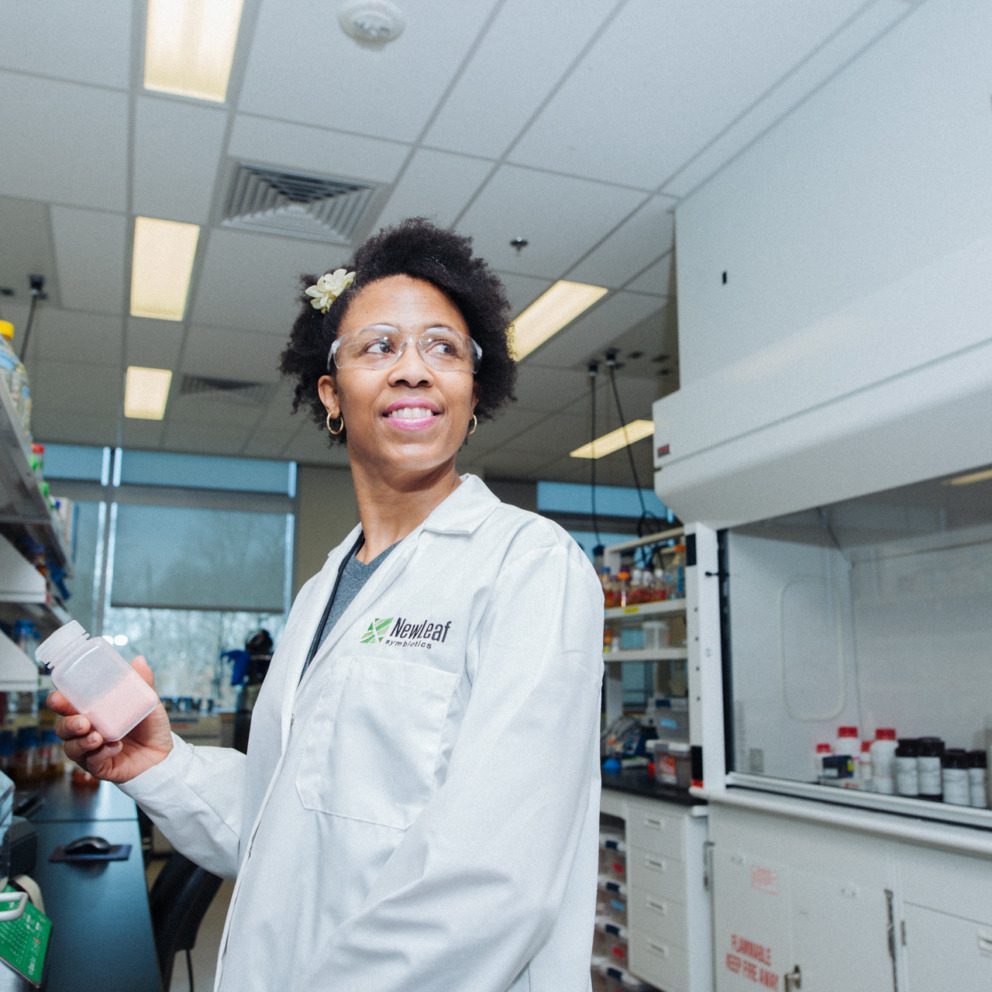Appetite for Action
De Nichols and the FoodSpark team bring social change to the potluck table.
There’s something about the simple act of breaking bread – sharing a home-cooked meal with others – that nourishes not only the body but also the mind and soul. But with the right ingredients, a meal can also spur social change.
That is the idea that De Nichols, a civic designer, social entrepreneur and founder and co-organizer of local grassroots organization FoodSpark, is banking on. Nichols and the FoodSpark team host a series of potluck dinners that bring members of the community together to brainstorm ideas for solving challenges in St. Louis, particularly those that affect underserved or marginalized populations. The potlucks lead to larger crowdfunding events in which microgrants are awarded to top projects as voted on by participants.
“I make much of my creative practice around what I call common cultural denominators – the cultural universal elements of our life that, no matter what our differences are, everyone has to do. Eating is one of those things,” Nichols explains. “Those common cultural denominators like food and storytelling and art become the catalyst for setting a space and an environment for having these types of difficult conversations. By bringing everybody to the table, no matter what their perspectives are, we know that we can always start a really strong conversation.”
The initial idea for FoodSpark came when Nichols returned to St. Louis for graduate school in 2012. At Washington University, she spent her first year of grad school on creative projects, some of which were part of the Clinton Global Initiative. Through her work, Nichols met a lot of students from other cities who gave a number of reasons why they didn’t like St. Louis.
“I felt really insulted by that, so I wanted to show them what really made me love St. Louis, and part of that was through food,” she says.
Through a church challenge called the Spark Good Project, Nichols spent 12 weeks taking other students out to St. Louis restaurants to expose them to different types of cuisine and help them fall in love with the city. This became costly, so she began hosting potluck dinners and calling them Food Sparks, keeping with the notion of utilizing food as a way of sparking good conversations and ideas. Over time, more and more people began to host the dinners, themselves.
“We had our first organizational partner with the Pulitzer Arts Foundation and The PXSTL Project. That was our first public project in 2014, and it just kept going from there,” Nichols says.
What began with Nichols and a couple of her graduate student friends has grown into a team of four local women managing FoodSpark and continuing to grow the concept. They include Nichols, Sophie Lipman from the Pulitzer Arts Foundation, former chef Maria Kveton from the Saint Louis Art Museum and new co-organizer Nichole Murphy from the Gephardt Institute for Civic and Community Engagement, who is helping FoodSpark with sustainability and succession planning as well as its overall business model.
FoodSpark hosts several different types of events, with each being part of a topical series that’s spread out over several months. Each FoodSpark dinner has a culinary theme, and often the food and the making of it serves as inspiration in and of itself.
“Our team likes to think about how cooking as a process is problem solving,” says Nichols. “In some of our events, we’ve even used parts of the cooking process as metaphors for helping us get through the conversations, so it really is that ultimate catalyst to help people ease into taboo topics.”
Potluck dinners, typically attended by 20-30 people, start the conversation and foster a connection among attendees. Next are extended events called FoodSpark X, where in addition to meals, the FoodSpark team provides participants with tools and conversation guides to keep the ideas moving. Finally, The Spark, the largest (80 to 100 people) event of the series, is a crowdfunding dinner party during which participants have two minutes to pitch an idea to the group. Attendees then vote to determine which community-driven ideas will receive a microgrant to help get them off the ground.
Funds for the microgrants come from attendee donations (a suggested $10) and previously have been matched by organizational partners such as Venture Café St. Louis and Carrollton Bank. In order to pitch an idea at The Spark, participants simply submit a one-page proposal that captures the essence of their idea and how the money would be used. This aspect of FoodSpark grew out of another St. Louis initiative called Sloup, a soup dinner series that focused solely on the crowd-funding portion of the model. When Sloup disbanded in 2015, Nichols and her team found a way to integrate the concept into FoodSpark.
Nichols says most of the ideas that have been funded are meant to benefit others. For example, grassroots organization QTPOC: STL recently received funding to provide scholarships for local queer and trans youth to attend conferences and workshops that center on LGBTQ+ work. PotBangerz, which provides meals and resources for unhoused individuals, and the Justice Fleet, mobile art experiences that explore identity and healing, are two additional concepts that FoodSpark attendees have awarded with microgrants recently.
The beauty of FoodSpark’s model is that it provides support for small, grassroots projects and organizations that might otherwise be rejected from more formal nonprofit grant processes while also offering them immediate funding. In addition to that access, Nichols says one of FoodSpark’s biggest benefits is that it creates what she calls “brave space” for ideas to grow.
“I don’t think our city has enough brave space where people of different perspectives can come together in one setting and have a conversation about hard topics that is not divisive,” she says.
Now several years into the project, the FoodSpark team has collected dozens of recipes from participants, some of which are shared on the website and via weekly emails. Nichols says that one goal this year is to consider how to compile and share those in a more meaningful way.
The current FoodSpark series based on social and political issues runs through April. The next series, called Black Summer, will run from May through August and focuses on the fifth anniversary of the uprising in Ferguson in 2014, which aligns with the 400th anniversary of the first slaves being brought to the Americas in Jamestown. FoodSpark will finish the year by partnering with EdHub STL to focus on educational innovation.
